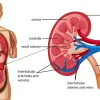What are the risk factors for heart disease?
Heart disease is a leading cause of mortality worldwide, and it is crucial to be aware of the risk factors associated with this condition. By understanding these risk factors, individuals can take necessary steps to prevent or manage heart disease effectively. In this article, we will discuss the various risk factors for heart disease and their significance in the Indian population.
- High Blood Pressure:
- One of the primary risk factors for heart disease is high blood pressure, also known as hypertension.
- In India, hypertension affects a significant proportion of the population, making it a major concern.
- Uncontrolled high blood pressure can damage the arteries, leading to the development of cardiovascular diseases.
- High Cholesterol Levels:
- Elevated levels of cholesterol, especially LDL (low-density lipoprotein) cholesterol, can contribute to the development of heart disease.
- In the Indian context, a diet high in unhealthy fats and oils, along with a sedentary lifestyle, can lead to increased cholesterol levels.
- Tobacco Use:
- Tobacco consumption in any form, such as smoking or chewing tobacco, significantly increases the risk of heart disease.
- In India, the use of tobacco products, particularly cigarettes and smokeless tobacco, remains prevalent, contributing to a higher incidence of heart disease.
- Unhealthy Diet:
- Consuming a diet high in saturated fats, trans fats, salt, and sugar can increase the risk of developing heart disease.
- Traditional Indian diets, which are rich in fried foods, sweets, and processed snacks, can contribute to an unhealthy diet pattern.
- Physical Inactivity:
- Leading a sedentary lifestyle and not engaging in regular physical activity can increase the risk of heart disease.
- In India, where desk jobs and a lack of exercise are common, physical inactivity has become a significant concern.
- Obesity and Overweight:
- Being overweight or obese puts extra strain on the heart and increases the likelihood of developing heart disease.
- In recent years, India has witnessed a rise in the prevalence of obesity, particularly among the urban population.
- Diabetes:
- Diabetes, especially type 2 diabetes, is a significant risk factor for heart disease.
- India has a high burden of diabetes, primarily due to genetic predisposition, sedentary lifestyle, and unhealthy eating habits.
- Family History of Heart Disease:
- A family history of heart disease can increase an individual’s risk of developing the condition.
- Genetic factors play a role in heart disease, and individuals with a family history should be vigilant and take appropriate preventive measures.
- Stress and Mental Health:
- Chronic stress, anxiety, depression, and other mental health issues can impact heart health and increase the risk of heart disease.
- In India, where stress levels are often high due to various socio-economic factors, addressing mental health is crucial in preventing heart disease.
- Age and Gender:
- Advanced age is a risk factor for heart disease, with the risk increasing significantly after the age of 45 for men and 55 for women.
- Men are generally at a higher risk of heart disease until women reach menopause. However, after menopause, women’s risk catches up due to hormonal changes.
- Socioeconomic Factors:
- Socioeconomic factors, such as low income, limited education, and lack of access to healthcare, can contribute to an increased risk of heart disease.
- In India, where a significant portion of the population faces these challenges, addressing socio-economic disparities is essential for preventing heart disease.
By understanding these risk factors, individuals can make informed lifestyle choices and seek appropriate medical interventions to reduce their risk of heart disease. It is essential to adopt a healthy diet, engage in regular physical activity, manage stress, quit tobacco use, and monitor blood pressure and cholesterol levels regularly.
While awareness of the risk factors is crucial, it is equally important to have access to effective tools and resources for managing heart health. Fitpaa, an AI-driven Metabolism monitoring and management technology, offers personalized solutions to help individuals achieve their health and fitness goals, including preventing and managing heart disease. The Fitpaa app provides features like personalized fitness plans, nutrition tracking, workout sessions, and real-time guidance, making it easier for users to follow a healthy lifestyle and reduce the risk of heart disease.
To take control of your heart health and achieve your fitness goals, download the Fitpaa app today. Start your journey towards a healthy heart and a fulfilling life. Remember, your well-being is our mission!









